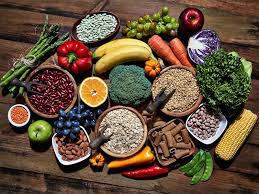Eating for longevity is all about nourishing your body with healthy foods that can help you live a long and healthy life. While genetics play a role in how long you live, your lifestyle choices, including what you eat, can also have a significant impact. In this article, we will discuss tips and tricks to help you eat for longevity and live a healthy and fulfilling life.
Table of Contents
- Introduction
- The Science of Longevity: What It Is and How to Achieve It
- Foods That Promote Longevity
- Foods to Avoid
- The Benefits of Intermittent Fasting
- The Role of Exercise in Longevity
- Mindfulness and Longevity
- The Importance of Sleep
- How to Incorporate Longevity Foods into Your Diet
- Supplements for Longevity
- Conclusion
- FAQs
The Science of Longevity: What It Is and How to Achieve It
Longevity refers to the ability to live a long and healthy life. It is often associated with the prevention of age-related diseases such as heart disease, cancer, and Alzheimer's disease. While genetics play a role in determining how long you live, lifestyle factors such as diet, exercise, and stress management can also have a significant impact.
To achieve longevity, it is important to focus on a healthy diet that is rich in fruits, vegetables, whole grains, and lean proteins. Additionally, regular exercise, stress management techniques, and adequate sleep are also critical components of a healthy lifestyle that can promote longevity.
Foods That Promote Longevity
Certain foods are known to promote longevity due to their high nutrient content and antioxidant properties. These include:
Berries
Berries are packed with antioxidants, which can help protect your cells from damage and reduce inflammation in your body. Some of the best berries for longevity include blueberries, raspberries, and blackberries.
Leafy Greens
Leafy greens are rich in vitamins, minerals, and fiber. They also contain antioxidants that can help protect against chronic diseases such as heart disease and cancer. Some of the best leafy greens for longevity include spinach, kale, and collard greens.
Nuts and Seeds
Nuts and seeds are a great source of healthy fats, fiber, and protein. They also contain antioxidants and other nutrients that can help protect against chronic diseases. Some of the best nuts and seeds for longevity include almonds, walnuts, chia seeds, and flaxseeds.
Whole Grains
Whole grains are a good source of fiber, which can help lower your risk of heart disease, stroke, and type 2 diabetes. They also contain vitamins and minerals that are important for overall health. Some of the best whole grains for longevity include quinoa, brown rice, and whole wheat.
Lean Proteins
Lean proteins, such as chicken, fish, and beans, are important for maintaining muscle mass and supporting overall health. They are also a good source of nutrients such as iron and zinc.
Foods to Avoid
In addition to focusing on healthy foods, it is also important to avoid certain foods that can be harmful to your health. These include:
Processed Foods
Processed foods, such as chips, cookies, and sugary drinks, are often high in calories, sugar, and unhealthy fats. They can also contain additives and preservatives that can be harmful to your health.
Red and Processed Meats
Red and processed meats have been linked to an increased risk of cancer and other chronic diseases. They are also often high in saturated fat and cholesterol.
Sugary Foods and Drinks
Sugary foods and drinks, such as candy and soda, can









0 Comments